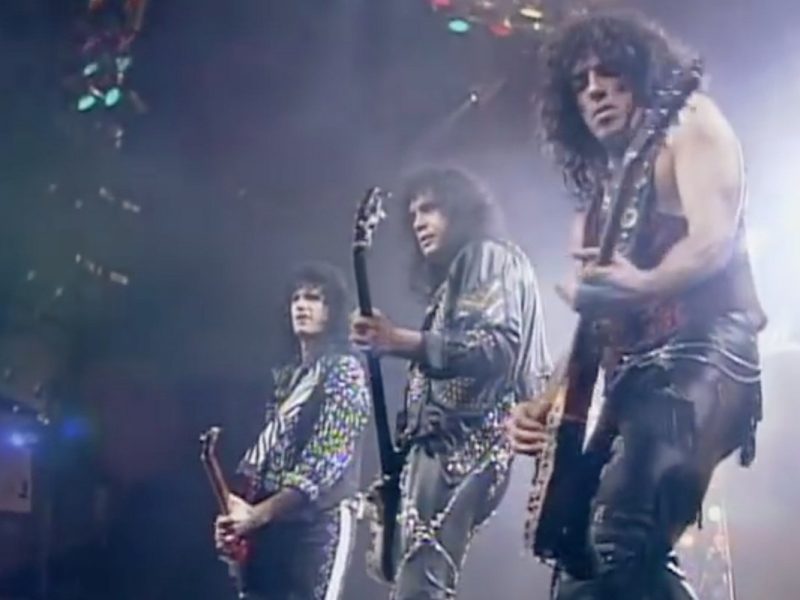In order to assemble what became one of their earliest classics, Genesis had to blend the pastoral whimsy of their first couple of albums and the rock pretensions of their most recent work, Foxtrot.
They did just that with the Oct. 13 1973, arrival of Selling England by the Pound. There’s a slew of literary allusions here (T.S. Eliot in “The Cinema Show,” Tolkien in “The Battle of Epping Forest”), but there’s also the almost glam-rock propulsion of “I Know What I Like (In Your Wardrobe).”
The literary references are apt, since Selling England might be best described as an anthology of short stories, loosely interwoven but separated rather than a true concept album. Unlike their subsequent double-album opus The Lamb Lies Down on Broadway, which marked the end of Genesis’ celebrated five-man lineup, each of the songs here works both together and of a piece.
READ MORE: The Worst Song on Every Genesis Album
If commentary like “Dancing With the Moonlit Knight” was a touch too insular in its focus on modern English life, and the puns sometimes a bit over the top (“he employed me as a karmacanic“), it’s all counterbalanced by a group performing at its musical zenith.
Listen to Genesis Perform ‘Firth of Fifth’
A Group Performing at its Zenith
Check out Steve Hackett’s stunning solo on “Firth of Fifth,” and Phil Collins’ jazz-inflected cadences throughout. Tony Banks’ underrated keyboard work (notably in “The Cinema Show”) remains the album’s other principal voicing, but Mike Rutherford’s bass begins to take on a more prominent role as well.
Peter Gabriel is at his narrative best in “Epping Forest,” while Hackett gets another tasteful feature in “After the Ordeal.” There’s also a notable hint of what’s to come for Genesis with the darkly emotional Collins vocal feature “More Fool Me.”
All of this gives Selling England by the Pound a layered complexity and an uncommon accessibility, even as it brings together all of the many disparate elements that made Genesis such a force. At least for the time being: Gabriel would be gone after the next studio project, then Hackett two albums later.
Genesis Solo Albums Ranked
Projects recorded apart from one another allowed members of Genesis to explore areas of their songcraft that might have gone forever undiscovered.
Gallery Credit: Nick DeRiso
How We Ranked Every Genesis Song



